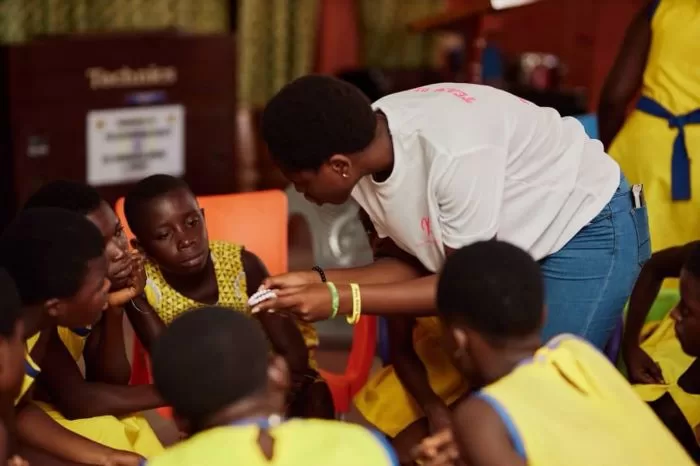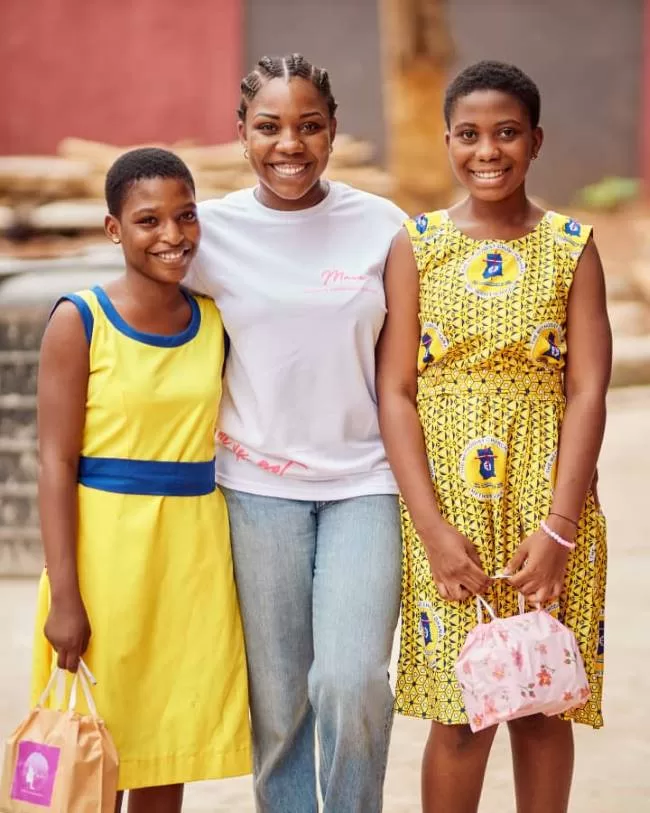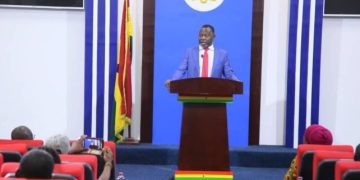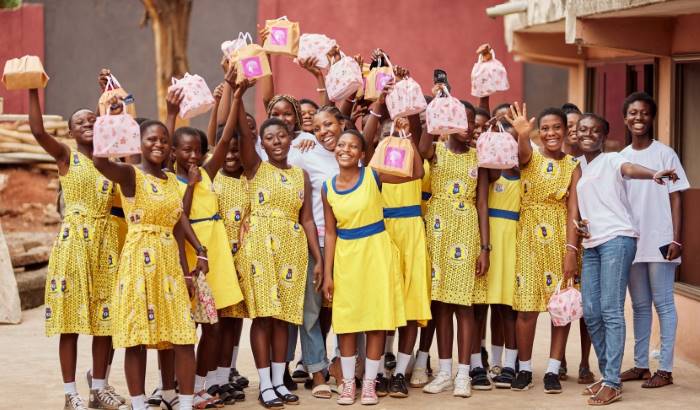Some female junior high school students in the Ashanti Region have openly admitted that they resort to the use of what they called ‘fose’ diapers, napkins and toilet rolls during menstrual period.
“I sometimes encounter my menses unaware when I am in school, and mostly I am not able to buy sanitary pad because it is too expensive. So what I do is that I buy fose diaper or toilet roll. But because those materials are not fit for purpose, I sometimes soil my uniform with blood when I have a heavy flow, and then run to the house,” a JHS three students (name withheld) confessed during an interactive session at the ‘Sister Sister’ event organised for basic school children in Ashanti region by Mace, a social enterprise based in Ghana.
The Sister Sister event which was held at the Wesco Practice School in Kumasi to commemorate the International Menstrual Hygiene Day was under the theme: “We Are Committed”. It was also to urge everyone to be committed to the call for action in creating a world where menstrual periods are a normal fact of life by 2030. And this aligns with the Sustainable Development Goal (SDG) 5 on achieving gender equality and empowering all women and girls.
In Ghana for instance, the price of sanitary pads continue to soar especially in recent years due to the rising cost of living. This has significantly resulted in period poverty affecting countless women and girls who are unable to afford or access sanitary products which adversely impacts their education, health, and overall well-being.
According to the United Nations International Children’s Emergency Fund (UNICEF), nine (9) out of every 10 girls in rural Ghana miss school during their menstrual periods. This is due to the lack of access to sanitary pads and basic facilities to manage their periods.

It is against this backdrop that Mace, as part of its many interventions, has come up with the Sister Sister project to address period poverty and menstrual hygiene in young girls.
According to the Founder of Mace, Ms. Soteria Aba Yedua Ntim-Adu, the project is intended to address period poverty amongst young girls in public schools in deprived communities in Ghana through the provision of sanitary pads and comprehensive education on menstrual health and feminine hygiene.
She expressed her dedication to the health and empowerment of women and girls in Ghana. “Every girl deserves the right to manage their periods with dignity and we need to take action and invest more in menstrual hygiene, we can create a world where no girl is left behind due to period poverty”.
Ms. Ntim-Adu noted that Mace is actively working towards breaking the barriers that hinder women’s progress and ensuring they have the requisite support to lead healthy and dignified lives.

The philanthropist and entrepreneur described as crucial for individuals and organizations to come together to fight against period poverty in Ghana.
The students during the Sister Sister event had the opportunity to learn about proper menstrual hygiene practices, the importance of using hygienic materials, and how to manage their periods in a healthy and dignified manner.
They were also taught how to make menstrual bracelets to track their menstrual cycle. As a token of support, over 200 girls in attendance were provided with a two months’ supply of sanitary pads. The event also encouraged open dialogue on menstruation to break the social taboos and misconceptions surrounding this natural process.



























